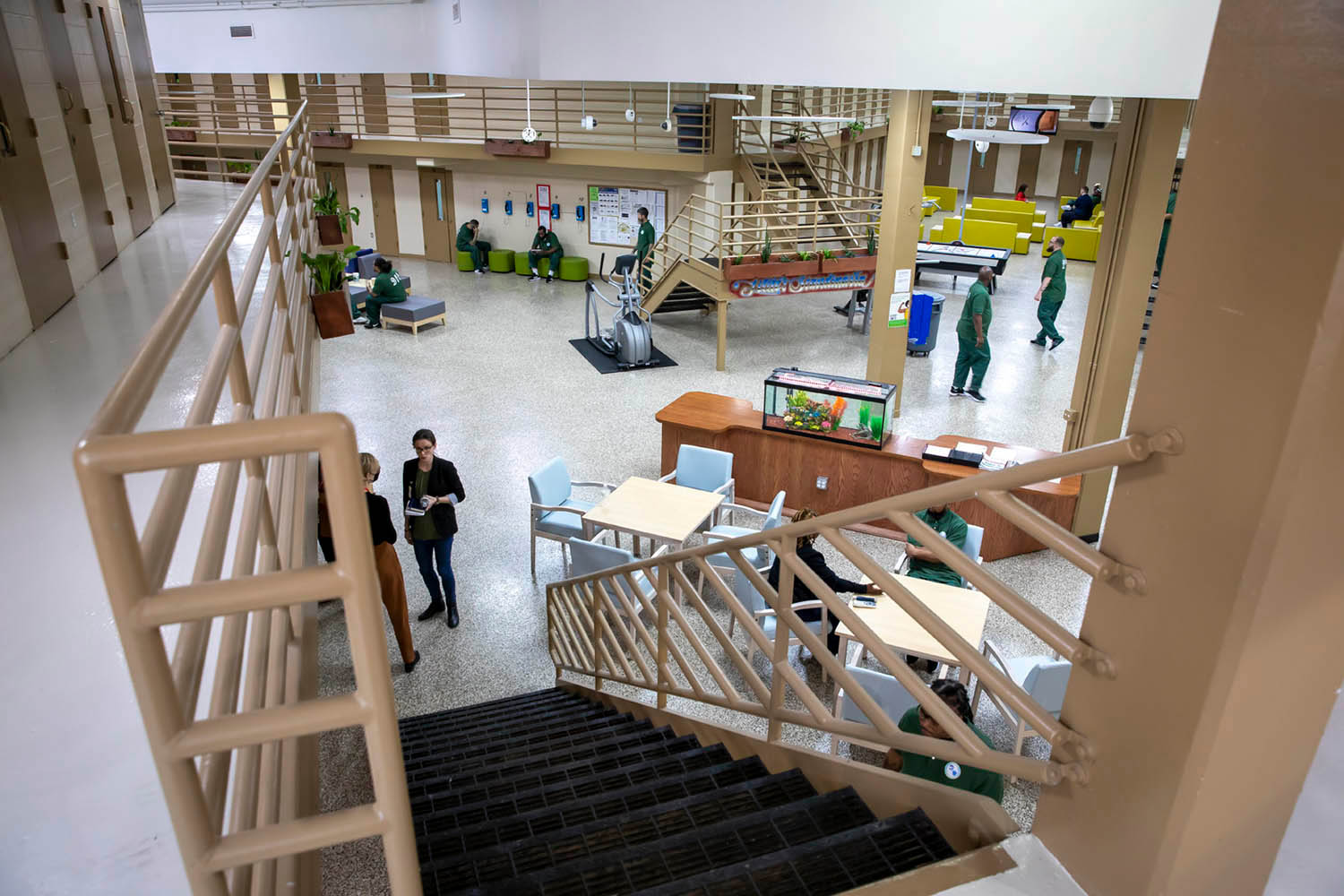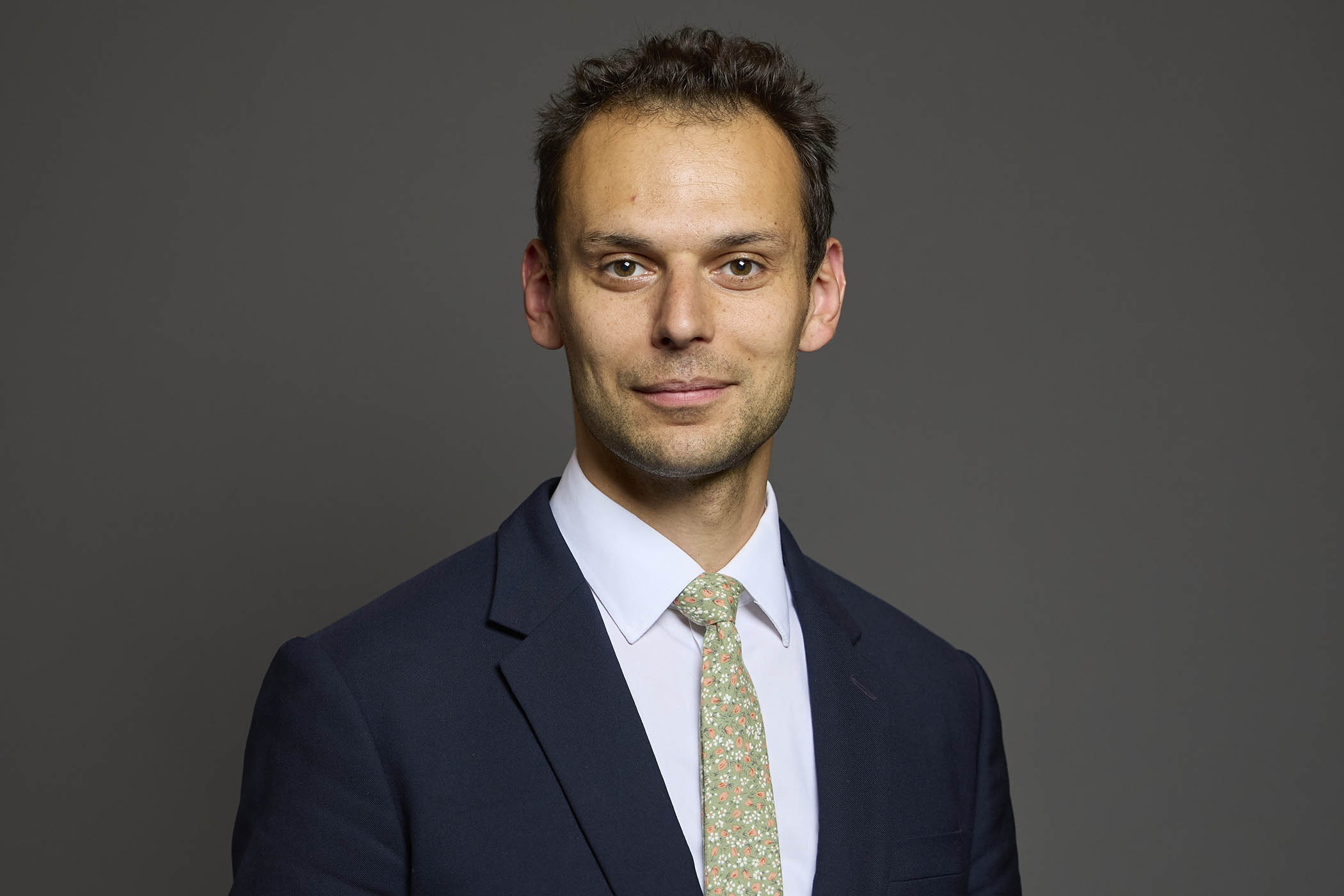In Little Scandinavia, dogs and cats wander past a fish tank surrounded by pot plants. There is a zen garden, a therapy room, a cappuccino machine, pastel sofas and a well-stocked kitchen including an air fryer.
This bright and airy facility near Philadelphia, in the US, could be a spa retreat or a luxury hotel but in fact it is an innovative wing at a medium security jail which is testing a new approach to incarceration.
The 64 men who live here have all committed serious, often violent, crimes but they are treated with respect by the staff. The focus is on normality and reintegration into the community after release.
The inmates are known as “residents” and the prison guards are called “contact officers”. They are encouraged to play ping pong or pool with the prisoners to build trust.
The unit, which is based on jails in Sweden and Norway, is part of a groundbreaking experiment being run by an international team of criminologists in collaboration with the Pennsylvania Department of Corrections, which is looking at the effectiveness of different types of prison regime.
Now Little Scandinavia is coming to Britain as the Ministry of Justice shifts towards a more rehabilitative approach to jail. Ian Blakeman, prison group director for London Prisons, said wings in Wandsworth and Pentonville, would be converted into Nordic units. About 120 cells in Wandsworth, and 60 in Pentonville will be allocated to the programme.
Walls in the crumbling Victorian prisons will be repainted in calming colours, with the refurbishment carried out by inmates as part of training and work programmes. There will be areas for prisoners to cook their own meals and more focus on therapy and education.
Staff working on the specialist wings will visit Norway or Sweden as part of enhanced training. The units will be partly funded by philanthropy and work with NHS mental health services as well as charities.
Blakeman, who has visited Little Scandinavia in Philadelphia, said the approach would make the wings safer and more effective. “If you can improve the climate in a prison, you drive down violence for both staff and prisoners,” he told The Observer.
“Obviously, there’s a rehabilitative element too. It’s not soft at all. Anyone taking part will have to work hard and be subject to drug testing. I think it will work.” With violence, self-harm and drugs rife in British jails, he added: “We need to do something different”.
Newsletters
Choose the newsletters you want to receive
View more
For information about how The Observer protects your data, read our Privacy Policy
Natasha Porter, chief executive of Unlocked Graduates, the prison reform charity which has been working closely with the Little Scandinavia project, said the aim was to transform the way prisons operate. “It’s about empowering frontline staff to make better decisions for the people in their care and build relationships with them. That’s how you deliver better security and ultimately reduce reoffending.”
According to the Ministry of Justice, 35% of adults who leave prison in England and Wales go on to commit another crime, rising to 59% of those who served short custodial sentences. In Norway, which puts a greater focus on rehabilitation, only 20% reoffend.
Last week, an independent review recommended radical reforms to sentencing to help tackle the crisis in British jails. Wandsworth prison in south London has attracted a high profile after a prisoner escaped and a prison officer was filmed having sex with an inmate. Pentonville, in north London, has also struggled with overcrowding, violence and self-harm. Last year the kitchen there was closed because it was overrun by rats.
The US Little Scandinavia project began in 2019 at the State Correctional Institution (SCI) Chester, Pennsylvania and became fully operational in 2022. As part of the randomised controlled trial, inmates are allocated by lottery to the Nordic unit. The rest of the jail is run like a traditional American penitentiary. Prisoners remain locked in their cells for large parts of the day and receive their food on a tray.
Jordan Hyatt, Associate Professor of Criminology at Drexel University, who is overseeing the programme, told a seminar organised by the think tank Nesta this week that the early results were promising. “We can say with strong robust evidence that the relationships between staff and incarcerated people are much more positive. Individuals on the unit feel safer and staff have a higher degree of job satisfaction. That’s translated into a near absence of violence. The crisis response unit has not had to be deployed to [Little Scandinavia] over three years. Formal violations of the rules are down by about half.”
The review, chaired by David Gauke, the former Conservative justice secretary, recommended releasing prisoners after they serve just a third of their sentence to ease overcrowding. More offenders should be punished in the community rather than in jail and there should be a presumption against short sentences.
Gauke said reform was needed to “end the dangerous cycle of early releases” and drive down reoffending. “The scale of the crisis we are in cannot be overstated,” he said. “Overcrowded prisons are leading to dangerous conditions for staff and contributing to high levels of reoffending.”
Photograph by Commonwealth Media Services



